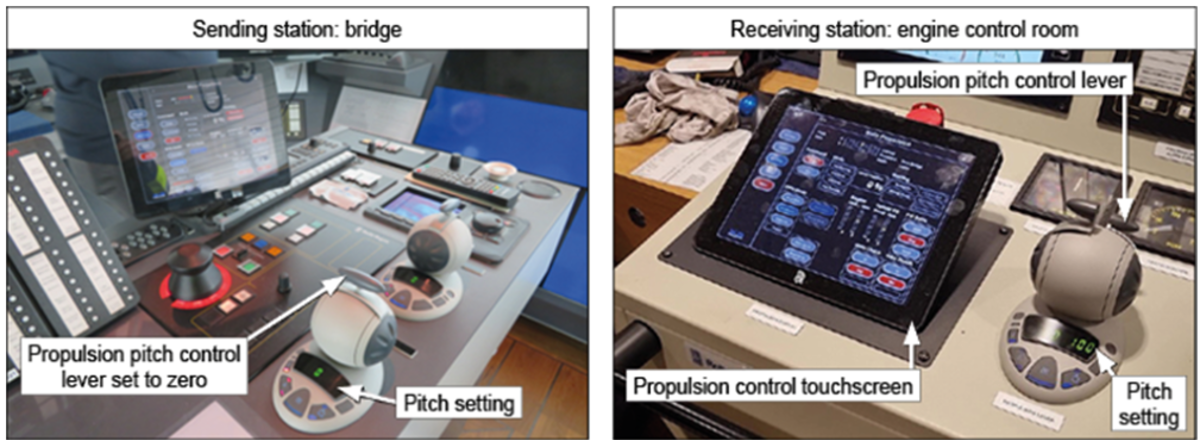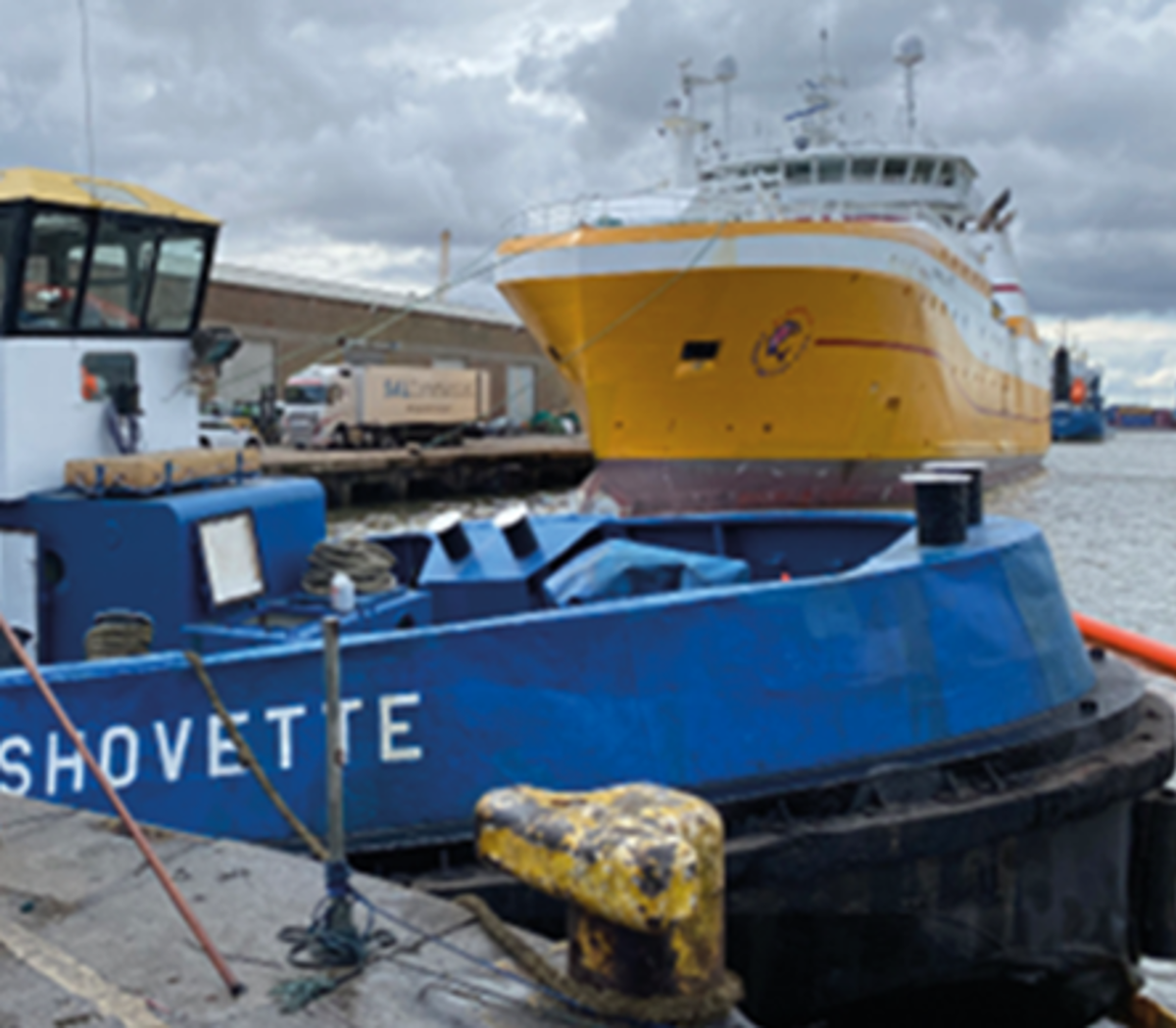MAIB: vessel collision caused by mismatch between bridge and engine room control
- Safety Flash
- Published on 3 September 2024
- Generated on 14 February 2026
- IMCA SF 18/24
- 2 minute read
Jump to:
The UK Marine Accident Investigation Branch (MAIB) has published a Safety flyer relating to a collision between two vessels caused by loss of propulsion control.
What happened?
Fishing vessel Kirkella lost control of its propulsion system while berthing, and collided with the harbour tug Shovette in the port of Hull, UK. Kirkella’s bulbous bow breached Shovette’s hull and starboard fuel tank during the collision, causing the tug to partially sink and resulting in approximately 7,000 litres of marine diesel oil spilling into the dock. Kirkella was not damaged. There were no injuries.
Kirkella’s propulsion system comprised a single main engine driving a controllable pitch propeller via a clutch and gearbox. The propulsion system could be operated from several stations located in the wheelhouse and from the engine control room (ECR). The loss of control occurred when the propulsion control was passed from the bridge to the ECR with the clutch engaged. At the time of the handover, the bridge propeller pitch lever was set at zero, while the ECR’s propeller pitch lever was set at 100% ahead. The propeller pitch automatically advanced when control was accepted in the ECR, causing Kirkella to move forward on the berth.

The status of KIrkella’s control system at handover of control

Kirkella and Shovette
What went wrong?
- The pitch levers for Kirkella’s propulsion control system were not synchronised between the bridge and engine control room when control was transferred. The propulsion control system was not fitted with interlocks to prevent this from happening – these were not required.
- Kirkella’s engineer had not checked that the engine room pitch lever was matched to the bridge pitch setting when control was passed from the bridge to the engine room.
- There was no procedure for control changeover.
Lessons
The MAIB report drew the following lessons:
- The interlocks, which were optional, could be retrofitted by the engine manufacturer.
- Robust shipboard practices are essential to maintain propulsion control during handover, regardless of whether system interlocks are fitted. Documented procedures should contain a requirement for the operator of the sending station and the receiving station to check that propulsion systems pitch settings are synchronised at the time of transfer.
- To reduce the risk of propulsion thrust being applied inadvertently while alongside the MAIB suggests that it is advisable to declutch engines before transfer of control.
IMCA Safety Flashes summarise key safety matters and incidents, allowing lessons to be more easily learnt for the benefit of the entire offshore industry.
The effectiveness of the IMCA Safety Flash system depends on the industry sharing information and so avoiding repeat incidents. Incidents are classified according to IOGP's Life Saving Rules.
All information is anonymised or sanitised, as appropriate, and warnings for graphic content included where possible.
IMCA makes every effort to ensure both the accuracy and reliability of the information shared, but is not be liable for any guidance and/or recommendation and/or statement herein contained.
The information contained in this document does not fulfil or replace any individual's or Member's legal, regulatory or other duties or obligations in respect of their operations. Individuals and Members remain solely responsible for the safe, lawful and proper conduct of their operations.
Share your safety incidents with IMCA online. Sign-up to receive Safety Flashes straight to your email.